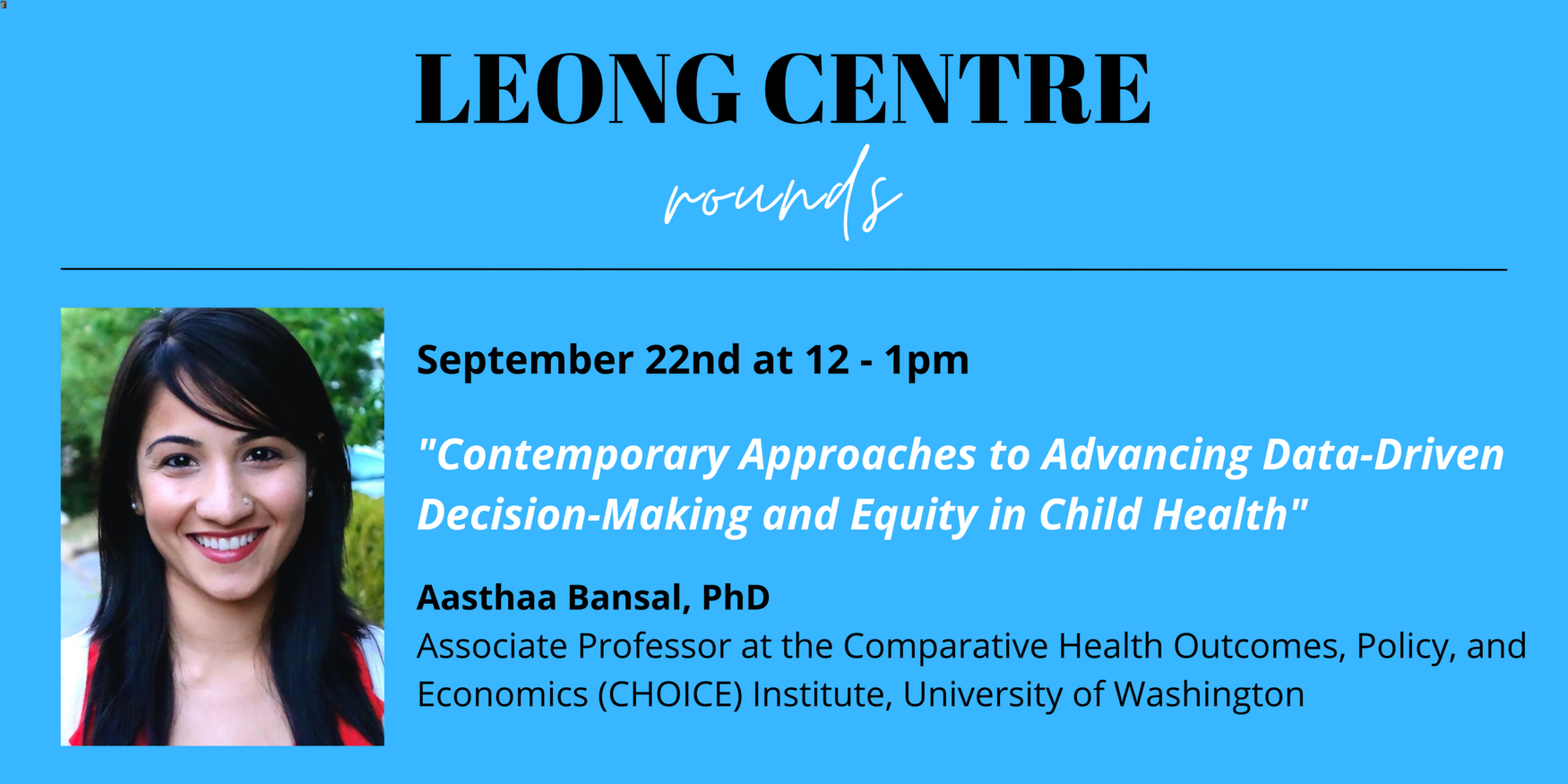Leong Centre Rounds: Dr. Aasthaa Bansal
DATE: September 22, 2025
TIME: 12:00 – 1:30pm (ET)
METHOD: In-person
Registration is not yet open. Please visit this page again for updates on when registration will become available
We are pleased to let you know that the one-hour talk will be followed by a reception.
SPEAKER:
Aasthaa Bansal, PhD, is a Professor at The Comparative Health Outcomes, Policy, and Economics (CHOICE) Institute, University of Washington, Seattle, where she leads a research program focused on advancing data-driven decision-making for health policy and clinical care, with a focus on equity. Her research interests include prediction modeling for sequential decision making, comparative effectiveness and outcomes research using large healthcare databases, addressing missingness in longitudinal patient data due to intermittent follow-up, and addressing algorithmic fairness to reduce disparities in healthcare decision-making. She holds an appointment at the Fred Hutchinson Cancer Center in Seattle, where she collaborates with health economists, health services researchers and clinicians on studies focusing on survival, costs, resource utilization, and financial toxicity among cancer patients, as well as investigating disparities in treatment and outcomes. She completed her PhD and postdoctoral fellowship at the University of Washington Department of Biostatistics. Prior to that, she received her BMath from the University of Waterloo (and during that time, completed a co-op term at SickKids, about 20 years ago!).
TITLE: Contemporary Approaches to Advancing Data-Driven Decision-Making and Equity in Child Health
DESCRIPTION: Surveillance testing in chronic disease management is often guided by fixed-interval protocols that may not align with individual patient risk. In this talk, the speaker will present a framework for personalized, risk-adaptive decision-making using real-world, longitudinal patient data and machine learning methods. She will highlight how dynamic risk prediction and the application of statistical decision theory can help optimize the timing of surveillance testing and prioritize care for patients most likely to benefit. Drawing from applications in cystic fibrosis and colorectal cancer, she will demonstrate how such models can reduce unnecessary testing without compromising outcomes. Importantly, Dr. Bansal will also address critical issues of health equity. She will present data showing systematic disparities in follow-up care and outcome ascertainment among racial and ethnic minority patients. She will discuss how biases in data collection and healthcare utilization patterns can lead to underrepresentation, misclassification, and biased predictive models. To address these challenges, she will introduce principled statistical approaches, such as imputation of missing biomarker and outcome data, for addressing health equity and other challenges in the use of real-world data for population health research.

Contact
Knowledge Mobilization & Community Engagement Specialist
Edwin S.H. Leong Centre for Healthy Children
